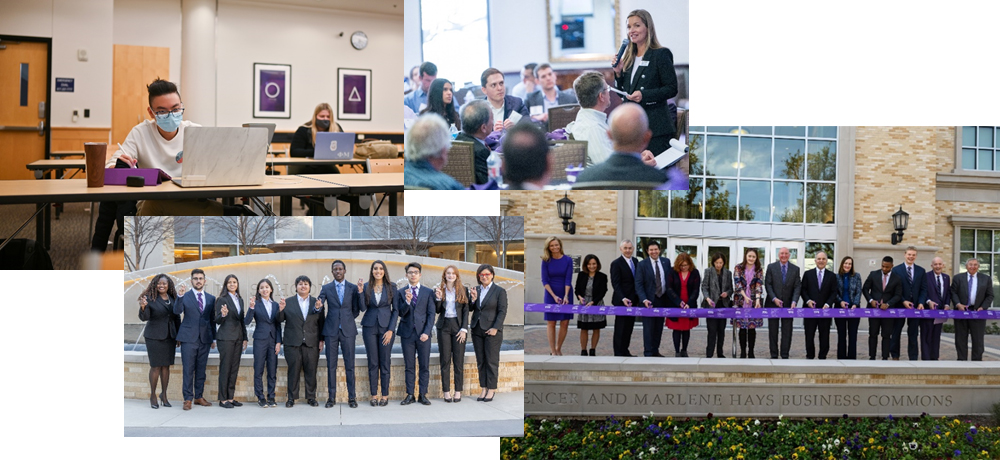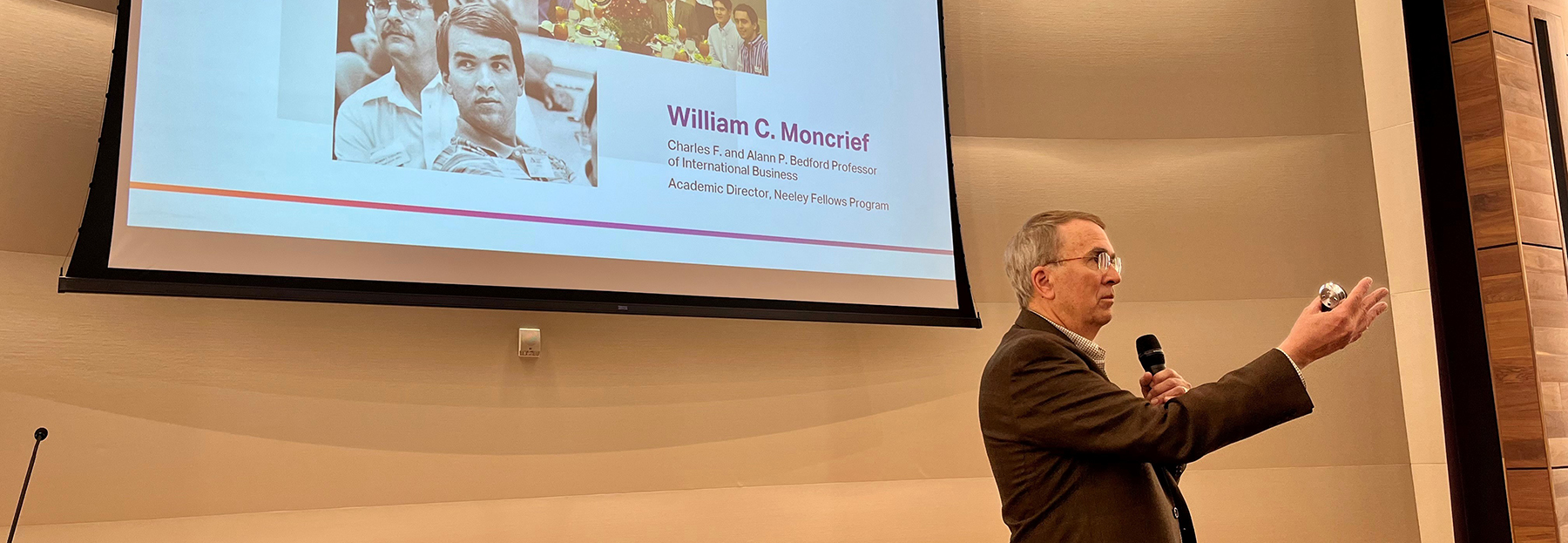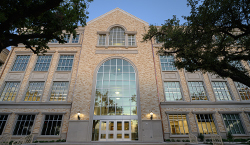To celebrate 150 years of TCU, Professor Bill Moncrief highlighted four eras of the Neeley School of Business. His feature lecture also recognized Moncrief’s pending retirement after working at Neeley for 41 years.
April 14, 2023
By Allie Salinas
TCU has been developing leaders of purpose and strength since 1873. A century and a half later, the Neeley School of Business reflects on the honorable past, values the present and forges the future.
“The future is ours to create,” said marketing Professor Bill Moncrief, to open the 150th anniversary showcase event. But, then he quickly changes course. “No, it’s yours to create, I’m retiring.”
To celebrate the university’s milestone anniversary and Moncrief’s upcoming retirement, Moncrief was invited to provide a special lecture on the school’s “Past, Present and Future.”
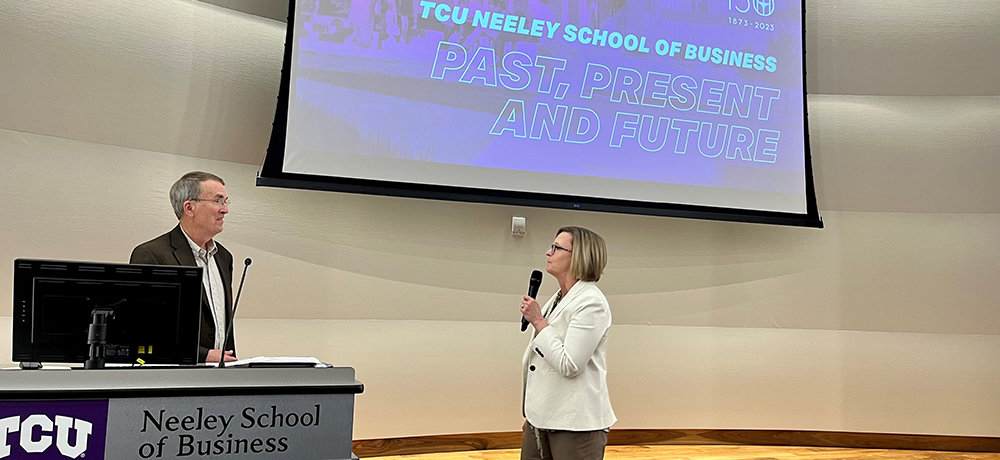
Moncrief, who serves as the Charles F. and Alann P. Bedford Professor of International Business and the Academic Director for the Neeley Fellows Program, is the longest-serving faculty member currently working in Neeley. With 41 years, he’s been active for nearly half of the time the business school has been running.
Moncrief provided deep perspective on four eras that have shaped the Neeley School of Business and created a sound foundation for the future.
Era One: The Early Years (Pre-1980)
The TCU Neeley School of Business was founded in 1938. It was officially named the M.J. Neeley School of Business in 1967. M.J. Neeley was known as a father of the community because of his love for Fort Worth. Neeley consistently supported the business school and engaged with the students by appearing in classes, attending all the Neeley events he could.
A key accomplishment in this era was the development of the Education Investment Fund (EIF). TCU was the first of three in the country to establish a student-run EIF in 1973.
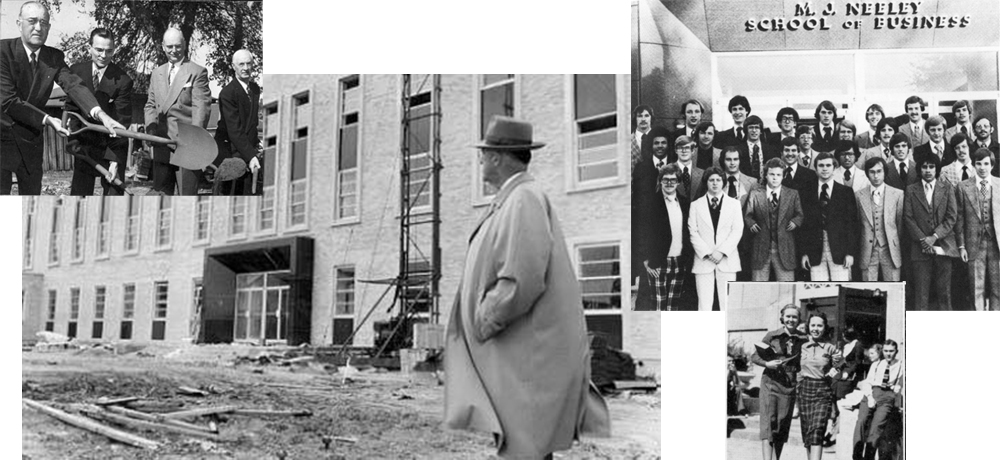
Era Two: The Emerging Years (1980-1999)
Tandy Hall was built in 1988. Tandy has similar characteristics to a mall, which was fitting when considering the popularity of malls in the 1980s, and the building developed the nickname ‘Tandy Mall,’ said Moncrief.
Kirk Downey, one of the two deans in this era, had several accomplishments in his time at TCU, said Moncrief. Notable achievements by Downey including expanding the global reach, knowledge and influence of faculty, and starting TCU Neeley’s Executive Education.
“Kirk decided we have to internationalize our faculty after the fall of the [Berlin] Wall [in Germany]. The world is changing,” Moncrief said.
Each summer, Downey sent three faculty to Germany and almost everybody in the faculty got to go on this trip. That initiative changed the way faculty viewed students, education and much more, said Moncrief.
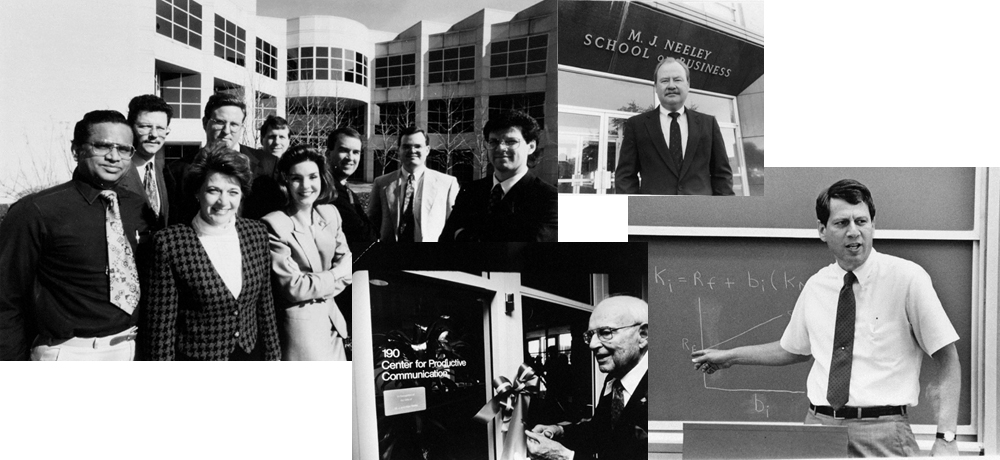
Era Three: The Reputational Years (2000-2019)
During the reputational years, there was a modernized shift in marketing and a rise in attention toward sports.
“As the rankings for football went up, our rankings for the Neeley School went up,” said Moncrief.
At this time, TCU’s leadership wanted to be known as more than a liberal arts college and the board hired Michael Ferrari as the first non-disciple of Christ minister to be Chancellor, followed by Victor Boschini.
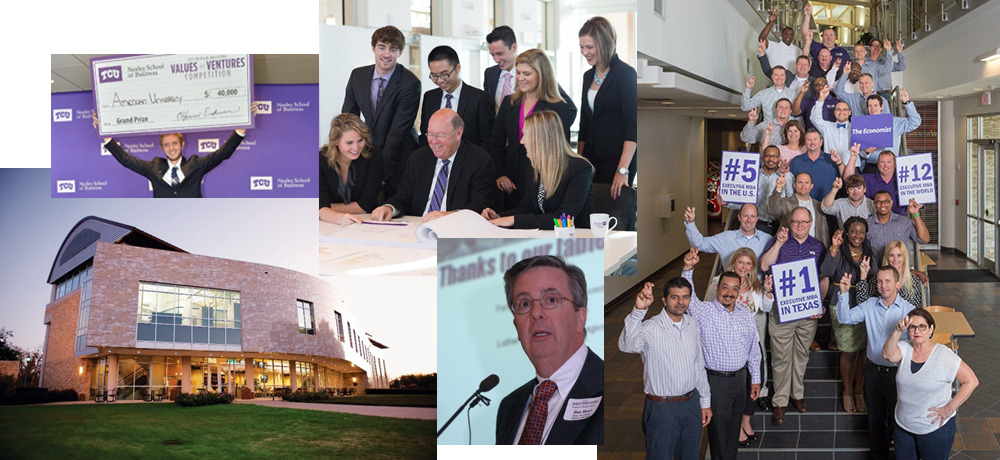
Era Four: The Future (2020 & Beyond)
TCU Neeley welcomed Daniel Pullin as dean, who now serves as TCU President. The impact of COVID-19 was also a highlight in this era as faculty and staff had to strategize with bringing education to a virtual platform.
During this era, an emphasis was placed on diversity and inclusion initiatives, which led to the creation of the TCU Neeley Office of Inclusive Excellence. This was a crucial step for the business school, Moncrief said.
“To see where we started in 1981 to today, is just truly staggering,” Moncrief said. “I can’t see any other university in the country going through the levels that we’ve gone through to come out where we are.”
